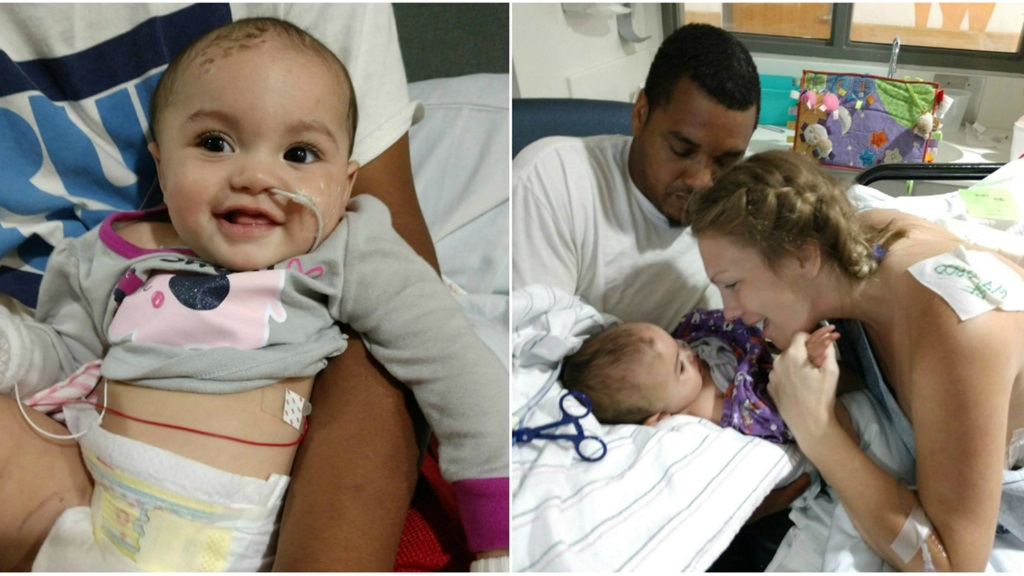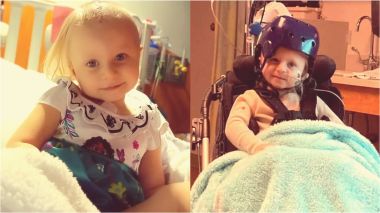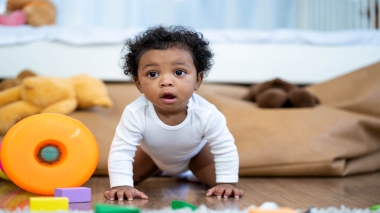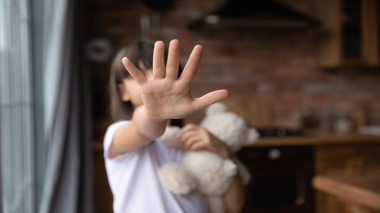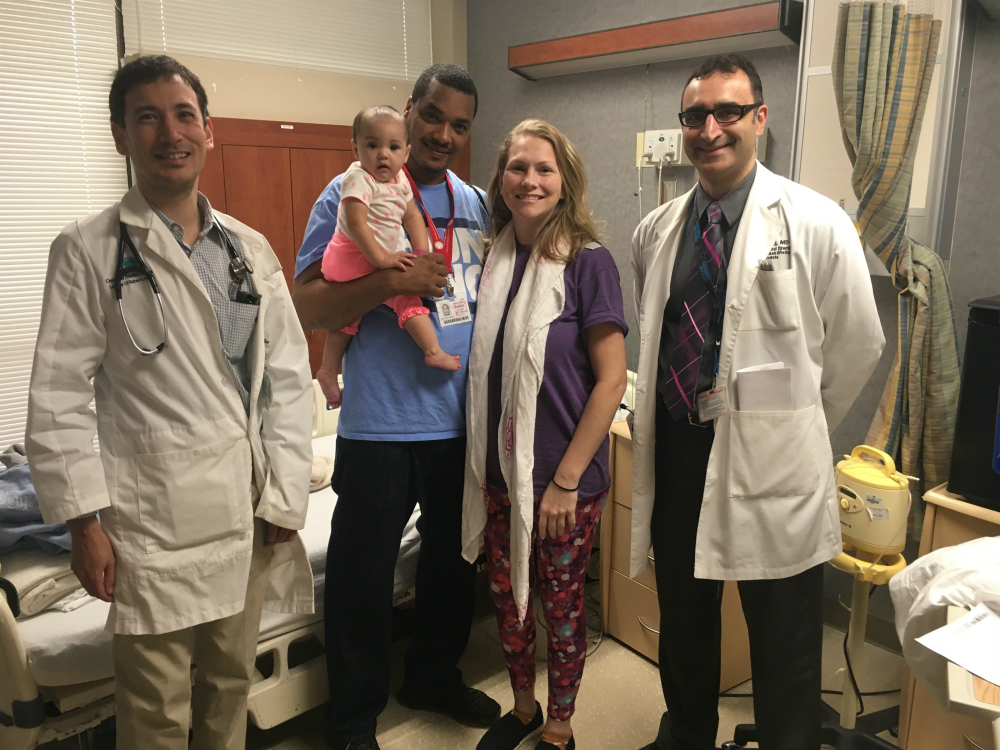
After Janet Gilliland and her eight-month-old baby, Jilliland Martin, were involved in a serious car accident last May, they badly needed two things: to get better as quickly as possible – and to stay together.
Baby Jilliland, who suffered a severe head injury when their car spun off the road during a rainstorm, needed intensive therapy that could be offered only at a specialized rehabilitation program for kids. Unfortunately, at the hospital in Chapel Hill where they spent the first two weeks after the accident, this wasn’t possible. But Janet didn’t want to be at a different hospital than her baby or to give up breastfeeding completely.
As the state’s only children’s hospital with a dedicated inpatient rehabilitation unit, Levine Children’s Hospital was prepared to welcome Jilliland. But they could offer something more: a nearby rehab hospital where Janet could also get the expert care she needed.
Jilliland’s doctors arranged for Janet to be treated for her own critical injuries at Carolinas Rehabilitation – just across the street from LCH. This was the first time that a breastfeeding mother and her baby had rehabilitation at the same time at LCH and Carolinas Rehabilitation.
“We were able to have the whole family stay together while each individual received the care they needed,” says Vishwa Raj, MD, medical director of Carolinas Rehabilitation and Janet’s doctor.
Coordinating to keep a family close
This unique arrangement allowed Janet and Jilliland to stay close physically and emotionally, keeping intact that mother-child bond so critical for recovery.
Despite recuperating from a punctured lung and multiple fractures to her pelvis, hip and ribs, Janet was determined to visit her daughter every day – including their first day at the hospital.
Traveling by wheelchair between her room and Jilliland’s across the street, Janet wouldn’t have missed these daily visits for the world. “It was amazing to be able to see her and kiss her and even lay down with her,” says Janet. “It was great for the soul.”
The daily trips took a lot of coordination from the staffs of both centers. For one, both Janet and Jilliland required at least three hours of therapy a day. Plus, naps were very important for Jilliland’s recovery. One additional complexity: Janet is deaf, so the rehabilitation teams had to make sure they were clearly communicating treatments and schedules for both Janet and the baby.
Another challenge was Janet’s desire to keep breastfeeding. Although her injuries prevented her from nursing while she was in rehab, she continued to pump every three hours to supply Jilliland with breast milk.
Because Janet was on several medications to control her pain, her doctors had to keep a close eye on her pumping schedule to make sure Jilliland’s milk was safe to drink.
“We had to coordinate our pharmacists and our nursing teams to figure out if we could save or not save the milk,” says Dr. Raj. “If there was an issue with dosing, we had to make sure the medication cleared her body before the baby could use the milk.”
Back to health, with some play time
Feeding, though, was the least of Jilliland’s problems. From the car accident, she had a fracture stretching from her eye to the back of her head, impacting her brain.
"Jilliland’s head injuries were similar to those found in babies who’ve had strokes," says Tobias Tsai, MD, the medical director of pediatric rehabilitation at LCH who treated Jilliland.
Jilliland experienced weakness in her left side, particularly her left arm. To help her regain her strength, therapists at LCH had her practice moving her arms in all kinds of ways. For example, they’d place a toy in different places in front of her and encourage her to reach for it.
“By making her therapy feel more like play, we were able to get her to do more and more things,” says Dr. Tsai.
Before the accident, Jilliland was already advanced for a baby that young. She could pull up to stand and cruise. This strength made the three hours of therapy each day that much easier. It also helped that Jilliland – whom her doctors and nurses called Jilly – hardly cried at all.
“She always had a smile,” says Dr. Tsai.
While it’s too early to tell how Jilliland will develop – especially since she’s too young for a full range of testing – Dr. Tsai believes she’ll lead a healthy life like other kids.
Now that Jilliland is back home, she’s doing “amazingly well,” says Janet. “You can tell her progress is so good, and she’s making strides every day.”
The same goes for Mom. Only two weeks after they entered rehabilitation together, they were both discharged on the exact same day – so they could return home together.
